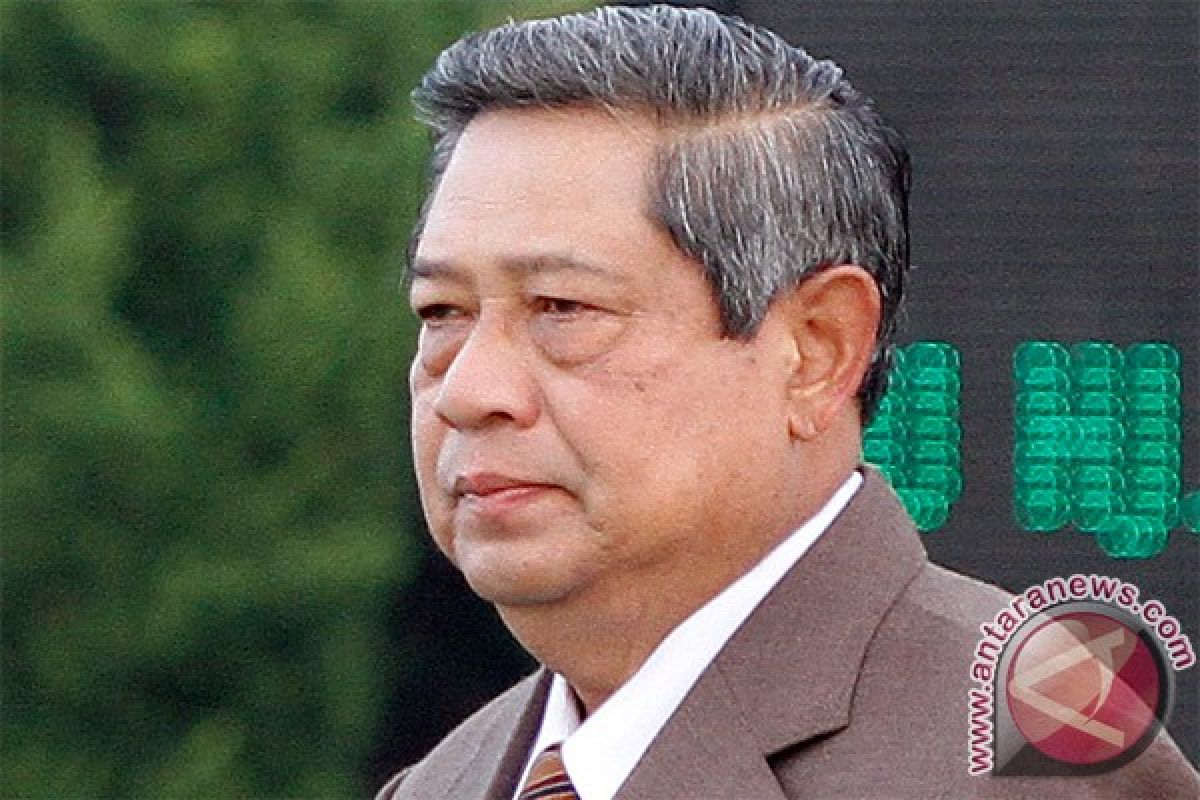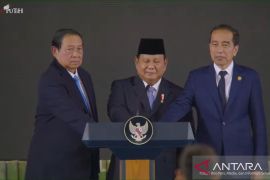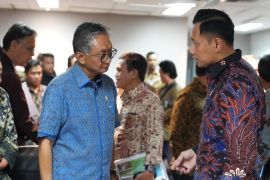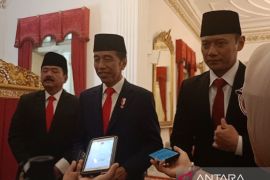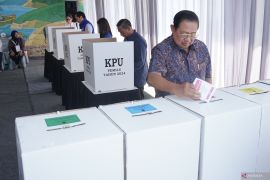"When asked about what they remember most about President SBY, they mostly mentioned his politeness," said Muhammad Dahlan, the Soegeng Sarjadi Syndicate`s survey coordinator for the 2014 presidential candidates, here on Wednesday, when presenting the results of the survey.
The survey, which covered 2,192 respondents (54.1 percent were male, while 45.9 percent were female) from 33 provinces and 163 cities and districts, was conducted during May 14-24, 2012.
According to the survey coordinator, 466 people - or 21.3 percent of the total respondents - mentioned politeness as the president`s most memorable feature, while 225 respondents (10.3 percent) mentioned his tolerance and 221 (10.1 percent), his intelligence.
Meanwhile, a total of 171 respondents (7.8 percent) mentioned his reputation-building activities, 134 (6.1 percent) considered him good-looking, 5.8 percent mentioned his efforts to maintain national unity, 5.3 percent remarked on his love for his family, 4.2 percent talked about the freedom of the press, and 3.0 percent, about economic growth.
"However, a large number of respondents - 405 in all, or 18.5 percent - said that they did not know, while 5.8 percent gave other answers; 1.8 percent said that they did not answer," he remarked.
According to Muhammad Dahlan, most respondents thought that the president had not been maximally helped by his ministers.
In all, 917 respondents (41.8 percent) believed that the ministers had not helped the president, while only 528 respondents (24.1 percent) believed that they had.
Meanwhile, 678 respondents (30.9 percent), when asked this question, responded that they did not know, while 69 respondents (3.1 percent) did not respond.
"Those who did not answer probably do not recognize the ministers," Dahlan conjectured.
According to Dahlan, the majority of respondents also opined that the president and Vice President Boediono had not been able to cooperate with each other harmoniously.
"A total 925 respondents (42.2 percent) said that the cooperation between SBY and Boediono is not harmonious, while 697 (21.8 percent) said that it is already harmonious. A total of 539 (24.6 percent) said that they did not know, while 31 respondents (1.4 percent) did not answer," he remarked.
Dahlan added that the samples had been taken based on a stratified random sampling method through direct interviews with respondents whose education levels ranged from elementary school (37.2 percent), junior high (19.8 percent), and senior high (32.5 percent) to undergraduate (4.3 percent) and graduate (4.3 percent) programs; the respondents were in the age groups of 17-27 years (18 percent), 23-38 years (27.4 percent), 39-49 years (33 percent), and 50 years and above (21.6 percent).
(SYS/KR-BSR)
Editor: Suryanto
Copyright © ANTARA 2012
